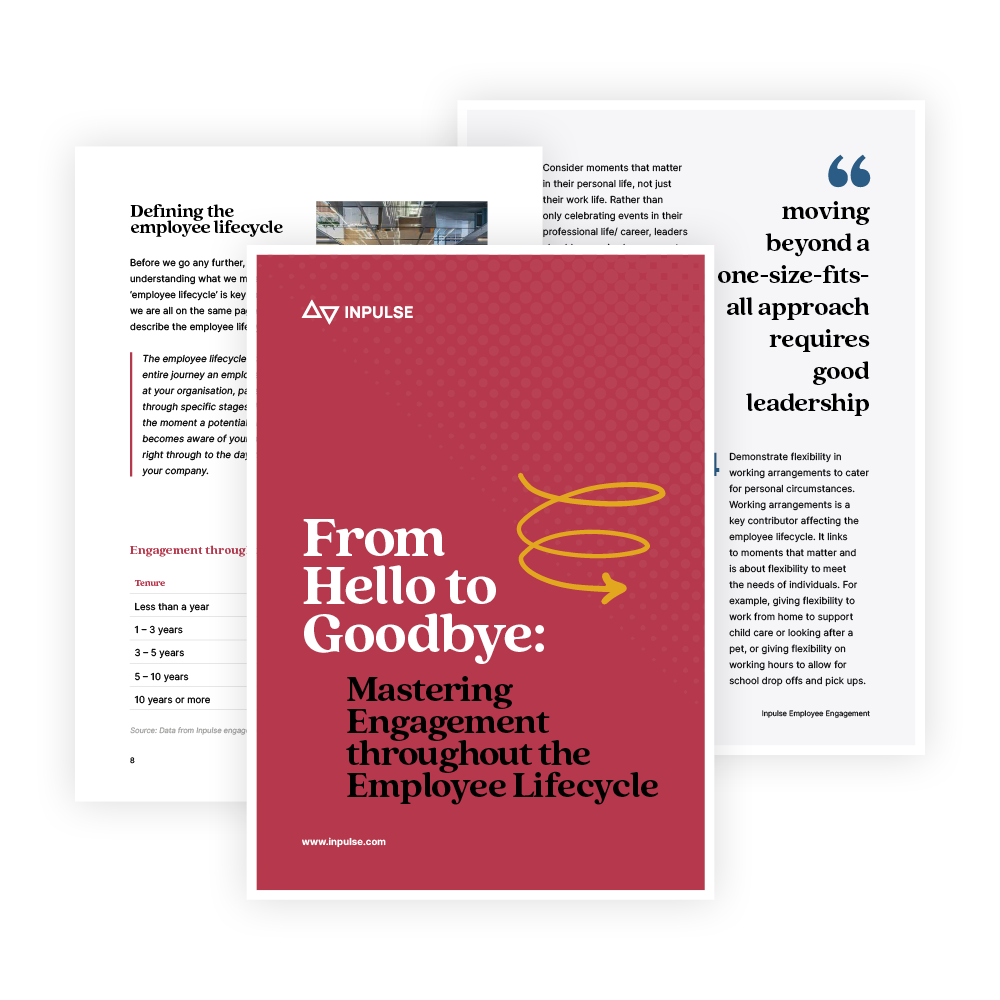Insightful Tips for Boosting Engagement through Learning and Development
There are many ways to improve engagement, performance, culture and retention within an organisation. There is no one way to achieve great results in these areas, which is tricky for HR leaders. What will employees respond to? Do they want greater benefits? Are they money-driven or goal-orientated? What would keep them happy and loyal?
Every organisation is different and every workforce is different. What works for one organisation won’t necessarily work for another. So for HR leaders to understand the exact needs and wants of their people, they need to ask. Which is where pulse surveys come in.
But that aside, many companies strive to improve employee engagement through learning and development (L&D). Most employees respond well to education and skills development, although we won’t go so far as to say it always helps to boost engagement – remember, that depends on the needs of the workforce. Deloitte, however, feels strongly about learning and development and engagement:
‘Learning opportunities are among the largest drivers of employee engagement and strong workplace culture – they are part of the entire employee value proposition, not merely a way to build skills’. – Deloitte
So if you’ve done your homework and found that your people value L&D – perhaps they’ve expressed that they’d feel more valued if they were invested in in this way, or feel more equipped to carry out their role if they were upskilled, whatever the case may be, then this is the article for you.
Here are some insightful tips for boosting engagement through learning and development
-
Make learning and development part of your culture
If you know your people value education, make sure that you don’t treat it as a tick-box exercise. Instead, make it part of your culture by investing in learning and development regularly. Provide frequent training and encourage the development of new skills. This way, your people and your future hires will associate your organisation with education and growth, which means you’ll no longer be the stepping stone in an employee’s career, but the chosen company for growth and career development, and honestly, these are the kinds of people you want in your organisation. They are the fuel you need to grow.
-
Invest in courses that benefit your people and your business
There are many organisations that, after finding their people respond well to learning and development schemes, think only of how the organisation can benefit from it. Essentially, they end up only considering training programmes that would boost their bottom line. There’s nothing wrong with that if you’re also considering how it would benefit your people and their career objectives. Being a people-centric organisation means that you consider the benefits for your people alongside those of your organisation. If you’re aware of all (or even some) of your people’s career goals, then, as a people-centric organisation, you have somewhat of a responsibility to provide training that aligns with these goals. HR leaders should not be afraid of over-educating their people out of fear they may leave, your people will not leave so long as you’re thinking of them, valuing their skills and encouraging them to grow alongside you.
-
Rely on internal and external training
Internal training is a great way to train your people on processes or technologies unique to your organisation. The problem is, employees cannot always carry these skills with them throughout their careers – in other words, skills like these don’t offer much value to their CV. Employees who respond to learning and development will want to develop skills that actually benefit their careers, which are typically skills developed through external courses and training. So make sure you strike a balance between both internal and external training sources. You’re sure to see better engagement, recruitment and retention this way.
-
Choose education providers wisely
When it comes to external training programmes, don’t forget to consider the education provider. What kind of accreditation do they provide? Will it be recognised by other employers? Would it be recognised internationally? All of these factors matter!
